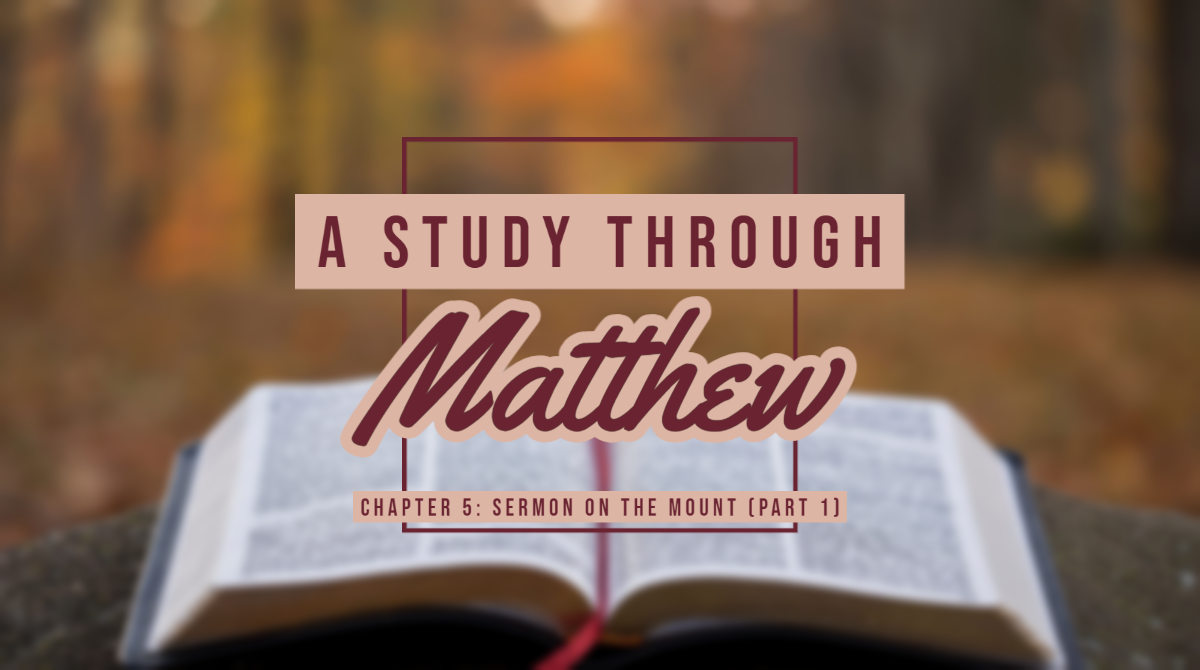Matthew 16:21 is a turning point in Jesus' ministry: "From that time Jesus began to show his disciples that he must go to Jerusalem to suffer many things from the elders and chief priests and scribes, and be killed, and on the third day be raised." This month, we're going to be looking through Matthew 21-23 where we'll see opposition towards Jesus from religious leaders as He enters Jerusalem.
When Jesus arrives in Jerusalem, He arrives amongst praise. However, this praise isn't long lived as He will soon deal with conflict from Jewish leaders about His identity and their rejection toward Him. These chapters we'll be covering now (and through the end of Matthew) take place during Holy Week -- the week leading up to Jesus' crucifixion and resurrection. Just like previous months, I will not be going through every verse in these chapters, so I encourage you to read through the entirety of chapters 21-23 before proceeding.
In the first part of Matthew 21, Jesus enters humbly into Jerusalem and cleanses the temple. Then Jesus' authority begins to be challenged. We're going to take a look at Jesus rebuking the Jewish leaders with parables found in Matthew 21:28-22:14.
The Parable of the Two Sons
The religious leaders were hypocritical and did not live up to their talk -- like the second son in this parable. This parable applies to us today as well. The fruit/actions of someone ultimately proves if they are obedient to God, not just words.
The Parable of the Tenants
This parable demonstrates the treatment God's prophets experience (they're the servants who were sent to collect the fruits). The son in this parable represents Jesus, sacrificing His life for us. The leadership in Israel wasn't really producing fruit; therefore, God takes His kingdom away from the nation of Israel.
Psalm 118:22 is also quoted in this parable. Jesus is the Cornerstone that was rejected. A cornerstone is, "an important quality or feature on which a particular thing depends or is based; a stone that forms the based of a corner of a building, joining two walls."
The Parable of the Wedding Feast
A wedding feast represented fellowship with God in His kingdom. Coming to the feast represented entering the kingdom. The invitation to the wedding feast was made attractive; however, people still rejected it. As the invite was getting rejected, the invite spread to those who weren't initially invited (like the gospel being spread to the Gentiles), both those who are good and bad. How does this relate to us? We're all undeserving of this invite, but God's grace is amazing! While this is a really attractive invite, it's still going to be rejected by some. People hear the gospel (the invitation), but don't accept and go back to their regular lives.
After Jesus spoke these 3 parables, the religious leaders try to trap Jesus in His words.
"Is it lawful to pay taxes to Caesar, or not?" (Matthew 22:17b) was the first question they asked Jesus. Jesus was aware of what they were trying to do. His response wasn't a simple yes or no. Instead Jesus said, "render to Caesar the things that are Caesar's and to God the things that are God's." (Matthew 22:21b) This is true today with the government. We are ultimately responsible to follow God in all things; however, we must also be obedient to the government (as long as it doesn't go against God).
Then, Jesus was asked about the resurrection, the greatest commandment, and whose son is the Christ. All of these questions were asked in the hopes that Jesus would say something to incriminate Himself; they weren't asked because they were genuinely curious. Jesus knew they were being malicious, and responded carefully and perfectly in each instance. See the rest of Matthew 22 for Jesus' response to each of the Pharisees and Sadducees questions.
Jesus condemns Jerusalem for its rejection of Him (Matthew 23)
Before Jesus declares seven "woes" to the scribes and Pharisees, Jesus warns the crowd and His disciples not to follow false leadership (the Pharisees). Jesus calls them hypocrites -- their words and actions do not match up. This warning is true to us today. We have to be cautious of false leadership seen today. There are people who claim to be Christians; however, their actions don't match their words.
Do you remember the beatitudes from Matthew 5?

The 7 woes seen here contrast the first 7 beatitudes in Matthew 5. Here's a list of the 7 woes:
- The shut door (23:13)
Because of the false leadership of the Pharisees, they've led people away from God's kingdom instead of toward it.
2. Entrapped converts (23:15)
Proselyte - a person who has converted from one opinion, religion, or party to another.
3. Binding oaths (23:16-19)
This isn't the first time the Pharisees overlook the higher principles of the law and focus on superficial distinctions.
4. Neglecting the weighty matters of the law (23:23)
While they made sure to tithe, justice, mercy, and faithfulness were neglected.
5. Clean outside, filthy inside (23:26)
The Pharisees focused on external purity, but had filthy hearts.
6. Whitewashed tombs (23:27-28)
Another metaphor of the Pharisees being hypocrites. They might appear outwardly beautiful, but not on the inside.
7. Descendants of murderers of the prophets (23:29-32)
The Pharisees have been scheming to have Jesus killed, just like their ancestors persecuted and murdered God's prophets.
Matthew 23 ends with Jesus lamenting over Jerusalem.
The word "hypocrite" was used a lot throughout this section of Matthew. This was how Jesus describes the Pharisees; however, Christians today struggle with being hypocritical. Take some time to really think about your life and your actions. In what ways have you been hypocritical and what can you do to change?
Cornerstone Impact Update
Just like last month, there isn't a lot to update on for our BRI partners. A couple weeks ago, Eventide shared their 2022 annual shareholder letter. In this, Eventide reflects on the importance of remaining true to their investment philosophy. Their investment philosophy is: "We believe that high-quality companies that excel at creating value for others and trade at a discount to intrinsic value offer superior long-term risk-adjusted returns." Even during the fear-driven and uncertain market, they remain true to their philosophy.
See how they've been doing this in their annual shareholder letter:

This year, we've been posting a lot more Cornerstone content. Back in April, I wrote a blog, "What are you profiting from?" This blog focuses on the avoid mandate for Biblically responsible investing. If you're interested in a free screening of your investments, there's a free tool included in the article.

If you missed passed Cornerstone blogs and want to go back and read them, you can find all the articles here.
Your faith and the workplace

We share a lot more content than just these Cornerstone blogs a couple times a month! Wednesdays we have short #WednesdayintheWord posts on our social media and on Saturday we have our Timothy Keller book study. The book is separated into 3 parts and we finished part 1 in September. There's still time to jump in though! Catch up with the first part of the book here:

The Saturday morning posts will be on Facebook, LinkedIn, and Instagram. You can purchase the book, Every Good Endeavor on Amazon if you'd like to dive deeper into connecting your work to God's work.
If you have any questions about the study, let me know.
Have you ordered a FREE Cornerstone shirt?
We still have some free (super-soft) Cornerstone t-shirts available (sizes limited). If you haven't received one yet, you can fill out the order form below. Stay tuned for a new design and color coming before the end of 2022!






